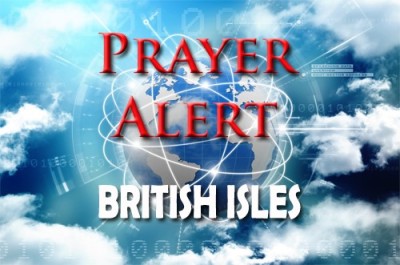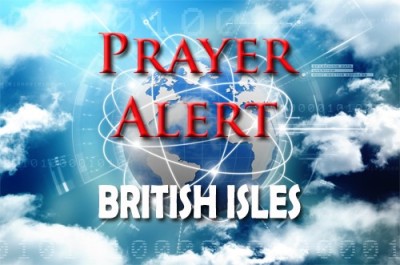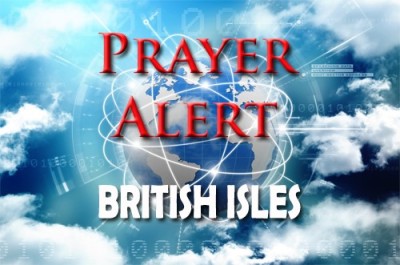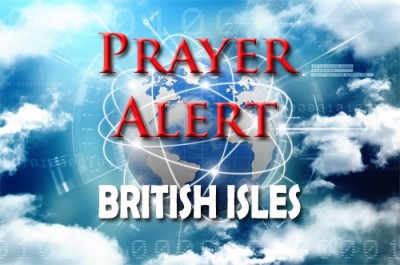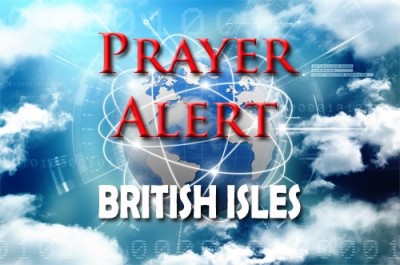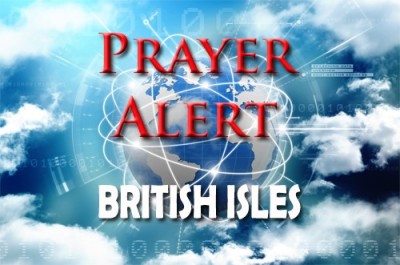Christopher Gunderson was born with complete gastroparesis, unable to eat normally and reliant on feeding tubes for 16 years. Told by doctors he might not survive, he experienced daily pain and severe limitations. But at a ministry event in 2011, after prayer and a powerful encounter with God, Christopher felt what he describes as a 'lightning bolt' through his body - a shock that he believes restarted his stomach. That night, he ate a full meal for the first time ever - without pain. Over the following weeks, he was able to eat normally and eventually had his feeding tubes removed. His doctors were stunned. Today, Christopher shares his testimony widely, proclaiming the healing power of Jesus and the reality of miracles.
Seventeen-year-old Canaan Hill, an aspiring preacher from Dallas, Texas, wowed the American Idol judges with a powerful rendition of 'I Need Your Glory' by Earnest Pugh, earning him a rare platinum ticket. Hill, who graduated early to pursue God’s calling, left judges in awe, with Lionel Richie declaring his performance 'spectacular' and praising his spiritual gift. Carrie Underwood described his voice as 'velvet' and 'powerful’, while Luke Bryan joked about the revival-style impact his singing must have in church. Hill humbly replied, 'To God be the glory’. He joins a growing list of bold Christian contestants on the show, including previous runner-up Megan Danielle and worship leader Warren Peay, all using their talents to glorify Jesus on a national stage.
At the Government’s border security summit in London, Keir Starmer reported that 24,000 individuals without legal right to remain in the UK have been returned since Labour took power - the highest return rate in eight years. The summit gathered representatives from over 40 countries to address illegal migration and people smuggling, including tech platforms accused of enabling trafficking via social media. Home secretary Yvette Cooper highlighted the cruel tactics of smuggler gangs, including hugely overcrowded boats, exploiting vulnerable people, and using drones to evade detection. Ministers acknowledged disappointment in the rising small boat crossings and pledged £33 million in new funding to target organised criminal networks globally. Starmer emphasised the need for international collaboration, calling people smuggling a 'global security threat’.
Household bill rises hit single parents hardest
03 Apr 2025As April begins, families across the UK face steep increases in household bills—including energy, water, and council tax—placing a particular strain on single parents and low-income households. Citizens Advice warns that millions are already at breaking point, with many spending over 40% of their post-housing income on essentials. Stories from struggling families highlight how even full-time workers are forced to take extra shifts or skip family time to make ends meet. While the minimum wage and some benefits are rising, many say it’s not enough to offset the rising cost of living. Suggestions to save money include switching service providers or seeking council tax reductions. Political leaders remain divided on solutions, while families urge for lasting support in the face of mounting financial pressure.
Tensions are rising in Birmingham as an all-out bin strike continues, leaving rubbish uncollected and sparking health concerns, including reports of large rats and one resident allegedly being bitten. With the city council being overseen by commissioners after declaring bankruptcy, the Government has said it cannot legally intervene, insisting it remains a local matter. MPs from across the political spectrum have criticised the inaction, branding it a 'national embarrassment’. The Unite union, representing a small group of holdouts, is accused of blocking depots and preventing contingency plans. Communities minister Jim McMahon and Labour MP Preet Gill both called for a resolution, stressing the urgent need for compromise. Meanwhile, residents across the region remain frustrated by the visible impact and potential health risks of uncollected waste.
Parents of children with special educational needs and disabilities (SEND) are challenging the Government in the High Court over the imposition of 20% VAT on private school fees. The Education Not Taxation campaign argues the policy disproportionately harms SEND families, many of whom are making significant financial sacrifices to access specialised education their children can't receive in state schools. Families testified to working seven days a week and missing precious time with their children just to afford tuition. The campaign estimates around 35,000 SEND pupils could be forced out of private schools due to the new tax, into a state system already described as 'in crisis.' While the Treasury argues the tax will raise £1.5 to £1.7 billion a year, families insist it's a breach of their rights and deeply unfair to vulnerable children. The case continues in the courts.
Experts warn the UK is wasting billions annually by failing to diagnose and care for people with bipolar disorder. An estimated one million people live with the condition, yet many are misdiagnosed, undertreated, or entirely overlooked. Patients have undergone years of suffering, misdiagnosis, and crisis before they finally received proper care. New data put the cost of bipolar-related care and economic loss at £9.6 billion a year. Yet experts say that with early diagnosis, consistent medication, and specialist care programmes, hospital admissions could be dramatically reduced and lives transformed. One model in South London has seen readmission rates drop by 80%. Despite the evidence, care remains patchy and specialist services limited. Campaigners and clinicians are urging a national care pathway and greater access to psychiatrists to stop the cycle of crisis and neglect, calling the current situation both a human tragedy and a financial folly.
A new report from Fusion, based on a survey across 186 universities, found that 12% of non-Christian students engage with the Bible weekly - often through social media. Among Christian students, the number rises to 29%. Half of all students believe the Bible is relevant today; this drops to 32% among non-Christians and 27% among those with no religion. While only 19% of non-religious students believe the Bible is reliable, many still want to explore its teachings. Some find parts of it offensive or contradictory, yet remain intrigued by what it has to say about life and truth in a confusing world. Fusion’s Adam Mitchell-Baker says this interest reveals a deep hunger in students, even amid cultural opposition. In an age of unstable role models, Jesus and the enduring truth of Scripture offer hope and clarity. Fusion’s vision is to put a Bible in the hands of every student in the UK.


